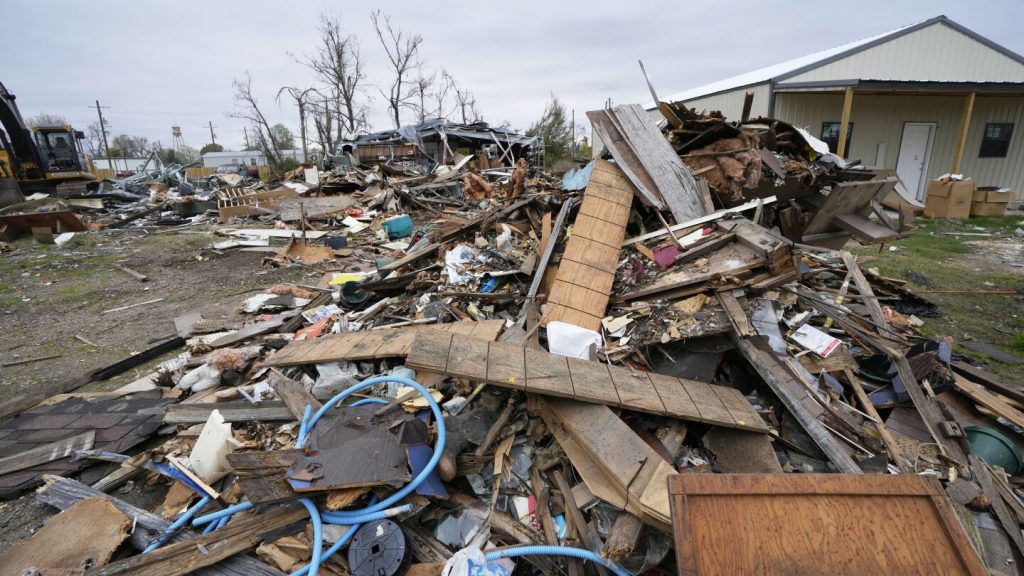A deadly tornado struck the town of Rolling Fork, Mississippi, last March, killing 14 residents and leaving a path of destruction in its wake. Ida Cartlidge and her family found themselves huddled on the floor of their mobile home as 200 mph winds tore through their community. Miraculously, their youngest son Nolan was the only family member to escape unharmed, despite being pulled from his mother’s arms during the storm. The Cartlidge family, like many others in Rolling Fork, spent the next year in a cramped motel room, still searching for a permanent place to call home.
The aftermath of the tornado exposed the vulnerabilities of Rolling Fork, a town where poverty rates are nearly double the state and national averages. Many residents, already struggling to make ends meet, were left displaced and without stable housing or employment. The tornado destroyed hundreds of structures, including homes and businesses, leading to a loss of tax revenue for the city. Public services and infrastructure were severely damaged, leaving residents with limited access to resources and struggling to rebuild their lives.
For families like the Cartlidges, the road to recovery has been long and arduous. The local high school remains closed, forcing students to commute to neighboring towns for education. Displaced residents lack access to transportation and face challenges in navigating their daily lives. Nonprofit organizations and government agencies have stepped in to provide assistance, but the needs of the community continue to outweigh the available resources.
One of the biggest challenges faced by residents like Queen’terica Jones is the lack of housing assistance for renters and those without legal rights to property. Jones, who lost her mother in the tornado, has struggled to secure stable housing and employment since the disaster. Federal and state aid efforts have been slow to meet the needs of communities like Rolling Fork, where economic resources are scarce and recovery is a gradual process.
Despite the hardships, there are signs of hope and resilience in Rolling Fork. The Red Cross and other organizations have provided support to displaced residents, offering extended stays at local motels and distributing essential supplies. The Cartlidge family, having owned their destroyed home, was able to secure a new mobile home through a nonprofit organization. They recently moved into a renovated trailer near downtown, marking a bittersweet milestone in their recovery journey.
As the one-year anniversary of the tornado approaches, the people of Rolling Fork are working tirelessly to rebuild their community and ensure a brighter future for themselves and their families. The challenges that remain are significant, but with continued support from nonprofits, government agencies, and the local community, there is hope for a better tomorrow in Rolling Fork.


